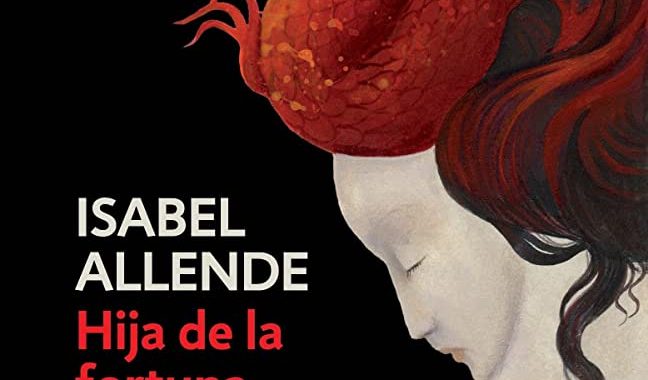Row, row, row your boat
gently down the stream.
Merrily, merrily, merrily, merrily,
Life is but a dream.
(English Language nursery rhyme)
I wouldn’t have read Finnegans Wake if it hadn’t been for Ela. It was a winter weekday, stopping at a sidewalk book vendor, when I saw it for $3 and said, “Yeah, I’ll take this and the Knut Hamsun. Will you do $5?” Later that night, over video call, “Look, Ela, I got this wonky ass book by one of my favorite writers, check out its opening sentence. . .”
“riverrun, past Eve and Adam’s, from swerve of shore to bend of bay, brings us by a commodius vicus of recirculation back to Howth Castle and Environs.”
Ela nodded with pursed lips, cig in hand. I reread her the sentence, laughed and followed up. “It’s full of made-up words,” I said. “No way I would ever finish it.”
She lit her cigarette. “Why not?” she asked. “I feel like you get something out of everything you read. And if this is an author you really like, then you should read it.”
“But it’s all jibberish!” I shouted. “All jabber!” (Funny how wrong I was. But not without reason. Even WordPress, in all it’s press-wordiness, underlines Joyce’s opening words “recirculation,” “commodius,” and “vicus” with a squiggly red line, words which are in no way deficient; it even underlines the proper noun “Howth,” an actual castle in Dublin. Clearly, WordPress is mistaken, as was I before reading the book; as are most readers who attempt the Wake.)
Ela lit her cig, again, eyebrows suggesting I agree. I nodded. She has been my muse ever since I’ve known her. And she was absolutely right. Although it would take two weeks, day in and day out, to reach this book’s final sentence, reportedly the start of the first sentence quoted above, I did finish.
In the end, what a joy to read Joyce, what a trip to row gently down the stream of his final book. Above all, thank you, muse, for inspiring this journey through an old author’s hitherandthithering waters of. Mulțumesc.
1. Form
For someone completely unfamiliar with the Wake — yet more so if only a little familiar with it — the first logical question to ask is the following:
What is Finnegans Wake?
It isn’t a memoir, it isn’t an essay. Not a collection of short stories, nor a poem, per se. But a story, yes, and therefore a novel, narrated from a single incredible premise.
Finnegans Wake is a dream. At once enigmatic and disturbing, the story follows the unconscious thought and free associations of a man from the time he falls asleep to the time he wakes up. In other words, it is a 628-page stream of unconsciousness.
I imagine James Joyce leaned over his typewriter, going blind in his late fifties, laughing hysterically into the night, page after page, as he would craft his final book; meanwhile Nora Barnacle, his wife, lovely with a robe loose around her waist, would step into the room to “tell him to stop writing and therefore stop laughing,” because no one could get any sleep. The novel’s material, this way, at once annoying and dangerously clever, became everything the author ever knew and could cram into one book.
Naturally, however, to analyze form, let us separate the artist from the art, and answer the next logical question:
What does the narrator dream of?
Short answer: the narrator dreams of everything. Long answer: the narrator dreams, as we all do, of a complete mental abstraction laced with reality; of various religious father-son dichotomies and his own; of the city of Dublin and port cities in general; of philosophies both western and eastern; of every river known to man; of conversations known only to the character; of so much more.
Could you envision a roommate jibberjabbering the following passage one night?
“Our Joss-el-Jovan! Our Chris-na-Murty! ‘Tis well you’ll be looked after from last to first as yon beam of light we follow receding on your photophoric pilgrimage to your antipodes in the past . . . your distributory tidings of great joy into our nevertoolatetolove box . . . For you had — may I, in our, your and their names, dare to say it? — the nucleus of a glow of a zeal of soul . . . on that day that belongs to the joyful Ireland . . . The silent cock shall crow at last. The west shall shake the east awake. Walk while ye have the night for morn, lightbreakfastbringer, morroweth every past shall full fost sleep. Amain.”
Now, you’ll forgive the collage I have glued with ellipses, from two pages 472 and 473 — I might have just as easily sampled any other passage, the entire night rambles on like this — but at least you get a taste of the dream-form.
Above so much madness, certain “columns” do appear, which give the book structure. A reader will, part-way through reading, notice that the narrator dreams a lot about his wife, Anna Livia Plurabelle.
“O
tell me all about
Anna Livia! I want to hear all
about Anna Livia.”
Quite the romantic. But with motive. Perhaps the couple share a bed, and like when one dreams, it makes sense that the immediate surrounding enters his unconscious state. A.L.P., as her name is often abbreviated, is one of a handful of totems to appear, disappear and reappear throughout the dream, taking on the role of central leitmotif. “Anna was, Livia is, Plurabelle’s to be,” we read at the end of Part 1. It is through her that we find the novel’s form: she is the book’s before, middle and after. The novel’s pour soi.
Why that name? “Anna” because it embodies a palindrome, not just a literary device, but a symbol of the novel’s water-like nature in which dream-life reflects waking-life. “Livia” because it alludes to the main river in Dublin, the Liffey. And “Plurabelle” because, on top of being a sexy ass name for a wife-character, it vocalizes the novel’s plurality of voices, its polyphony, its polyglot construction.
For consideration, it would be worth the trouble to scroll up a moment and take stock of the aforementioned passage. Principally, in it, or in literally any passage of the Wake, we find a confluence of minor literary devices (puns, portmanteaus, cliches) alongside two major devices, rhyme and allusion.
Truth be told, were I to go and quote examples of each one, I would never get any sleep myself. So, to deny my life the sweet irony of losing sleep to write about one character’s restless night, I will merely advise you to read the book yourself, before moving on to the second topic of this post.
Note, before we move on, that henceforth I will refer to the Wake with absolutely arbitrary nick-names, the Woke for example, in response to the novel’s own playfulness
2. Style.
Unreadable?
To enter a discussion on Joyce’s highly self-conscious style, I must address the biggest prejudice against Finneaeas Wawaweewa: it’s unreadability.
If you search YouTube for videos about the Weake, you’ll come across this couple (I guess a couple?), “analyzing” the book, and giving a choice “reading” of passages selected at random. Truth be told, the video is unwatchable. The couple, likely well-read in their day-jobs, give a truly asinine account. No one wonders why their understanding would be any deep or reflective. “Did you finish it?” the gentleman is asked by the lady. He replies, “I never even started it.” Next, the couple joke about how the gentleman used the book as pick-up lubricant, to lure more than one curious mind into the bedroom. As expected, just like they didn’t finish (or start) the Fenny, I didn’t finish this video.
Another example on YouTube, of a young woman who reportedly reads out loud for the first time ever, deciding for undisclosed reasons on enunciating the most gymnastic text in the English Langauge. The reader spits as she chatters about how “unreadable” the Weke of Funnigens is, a text which took 17 years to complete (in Paris, 1922-1939), whereas it took her no years to ignore the book until now, and just a few minutes (what, hours?) to slap together a clip of her running on about how silly the book is. Zero analysis, 100% blabber.
At this point, let us abandon the petty sniping at unsuspecting YouTubers; they mean no harm, they’re just trying to get views, pandering to the most common denominator, our misconceptions. To all the haters, we ignore you. But to the true skeptic, the one intrigued and broad-minded, I invite you to enjoy the following audio book, whose on-point description reads “To err is human,” and whose voice refutes all claims of unreadabilty.
Ok, so technically, it is readable. But . . .
We allow ourselves to ignore these unprofessionals. But, did you know who else shared their opinion? Borges, one of the most lucid minds of the XX century. He called the text unreadable, too. In a conference he gave on Joyce (a must watch), he went so far as to call the Wakee “a failure,” citing Virginia Woolf, saying of Joyce’s work, “It was a terrible defeat, a glorious defeat.” And yet (slyly turning away from the book’s unreadability and toward its merit), Borges, unlike the amateur Youtubers, was still able to say more than one good thing about the book under review.
First, Borges opens with a theory on contemporary Jewish identity, one which states that any Jewish nation usually found themselves at odds with a dominant identity. At odds, but never wholly separated. Not wholly separated, but never fully integrated, either. Borges compares this Jewish condition to the Irish condition amid English occupation. After listing a string of monumental Irish writers (all who wrote in English), Borges suggests why these writers were so grand. They lived within English culture, but owed it no special loyalty, allowing them to produce literature from a revolutionary point of view.
Second, Borges follows up with other great points on the Wyke, not just its revolutionary-Irish context. The idea that the book is a dream, that the text is water, I got from him. Also, that it was the result of one writer’s ambition to invoke all styles of writing, simultaneously, both natural and symbolic, ancient and contemporary, epic and lyric. “If we had to lose all of modern literature,” Borges at one point says, “and only save two books, it would be enough to save Ulysses and Finnegan’s Wake.” That’s a bold statement, but I believe, having read both books, the old master is on to something.
Last, notice what I, or anyone else, can appreciate: that even though Borges tagged Joyce as an unreadable “failure,” Borges still praises him, his vision, and sheds light on where the Dubliner was coming from. What more could an author ask of a reader? Basically, the same thing any reader could ask of an author: a fair shot to connect.
Have I convinced you to try reading the book yet? Let’s conclude with one final segment.
3. Meaning.
It only enriches any discussion of a book to say a little about what a book means. What it means to literature, what it means to society, what it means to the reader. Since critics far more intelligent than me have written extensively about this nearly inexhaustible book (see, for example the Skeleton Key), I will limit my post to what the book means to me.
A line from the book:
“They are tales all tolled. (Traduced into jinglish janglage for the nusances of dolphins born.)”
(Italics mine, from page 275.) In my first pass, I had missed this line. But Borges cited it. (Pause, for a realization, now that I think about it, how was the Weka unreadable for Borges if he spent an hour quoting it?) Look at how brilliant the line! Joyce plays on the clamor of jinglejangling keys and the absurdity of the English language. Only an Irish man could be so funny, wry and sharp about a tongue he both uses and abuses.
This line exemplifies what the book means to me: it isn’t jibberjabbering, but jinglish janglage! It takes the English of everyday life (cliches, proverbs, nursery rhymes), and evaporates them into clouds of expansive dream-English (pun, portmanteau, experimental), and even into the angelic (rhyme, allusion, lyric).
(Parenthesis)
(I can’t help myself! I’ve held this back all 3000 words! AHHH so many allusions! It’s killing me! the Wake . . . is it about waking up, or about a boat’s wake? Some could claim, rightly, that the novel isn’t so much a dream, but a river, one we must row. Hence the nursery rhyme at the top of the page, just like another sing-song we read over and over again in the book, about Humpty Dumbty, who falls [asleep] and is put back together again [awake] . . . what a metaphor for death and resurrection, for going and getting out of bed, for dreams, for cuddling next to a loving wife, for what an author crafts and a reader constructs.)
Another key.
This video on Youtube, a TedX video of a gentle mad scientist, a translator of Joyce, gave the book a lot of meaning for me. Did you even know that the book under review was translatable? (One point for the book’s readbility!) Umur Celikyay, the speaker, testifies to why and how he translates such a daunting text. Worth the watch, if only to pick up another key to reading the Waaaaaake: “Treat it like music.” That is, let the words sing, flow in and out. No one asks what “music” means when we listen to is, we simply let it slide into our ears. I found Celikyay’s advice quite effective. Once I started to read the book with this kind of detachment from a rigged “IT MUST MAKE SENSE”-mentality, then the book took flight, flowed.
Additionally, we must note, this comparison to music isn’t far fetched, given that on page 44 of the author’s corrected edition, we find a literal five-line staff of a 6/8 medieval-tempo ballad. There is, literally, music embedded in the text. (How do I know it’s medieval? Story: a few days into my reading, which I mostly did on the subway, a man next to me at 9 PM bumped my shoulder to ask, “How’s Joyce?” The man turned out to be a drummer. So I pointed him to page 44. And he explained the tempo. The stranger is forever within the pages for me. Along with Ela, who recommended I read it. More meaning.)
Quick confession, one final key.
I confess!! Previously, and more than once, Joyce’s pages struck me as odd, confounded me. I’m no grand master, no soul free of sin. Recall how lame and judgmental and quick to criticize Fungus Wungas I was. I almost didn’t read it! Later, once I did start reading, by Jove, it made me shake my head almost the entire time. And, as you can probably tell, I spent equal parts reading the book and discovering supplementary materials (not uncommon for the Joycean scholar).
But one video above all, in all its be-all tell-all, did it for me, for it helped me appreciate this difficult and challenging rivertext. The “creepy,” but “promising time-waster” — to quote the professor at the New School who made Joyce accessible for me in grad school — is this, Joyce himself reading a passage from his final book:
Do you hear what I hear!? The secret to reading FINNEGANS WAKE is to read it with an Irish accent! No, seriously, only with an accent in your head can you bend the swerves of connotations and flow from vowel to vowel, to necessarily row from line to line divine.
“First we feel. Then we fall. And let her rain now if she likes. Gently or strongly as she likes. Anyway let her rain for my time is come.”
In fine, fine manner, allow me to conclude with a metaphor. The weather this week has been beautiful in New York City, the time today is 8:14 AM, and I feel powerfully capable of saying the following.
For better or for worse, in my opinion, the book is more than dream, something whose beginning we never remember, and end we never reach. Finnegans Wake is definitely also a river. And like any river we see, we only ever touch a part of it. If you want, fine, Joyce is the spring and the reader is the ocean. But forget that. Just look at the book, just look at the river. To read is to move down its waters, to explore a shifting path, from where you start, to a point of no return.
Like the Rubicon river in northeastern Italy, which when Julius Caesar crossed it, his general declared, The die is cast, “Alea Iacta Est.” There is no going back.
For me, I started reading the Wake, and there was no going back. Only forward. Forward. Gently down the stream.
“Night now! Tell me, tell me, tell me, elm! Night night! Telmetale of stem or stone. Besides the rivering waters of, hitherandthithering waters of. Night!”
When I continue on to write my own books, I will hold this ambitious text close to my chest, and write freely, knowing that some Irish outsider had long ago broken all the rules, to produce his masterpiece.
“Plurabelle’s to be.” Really, Joyce? How did you know? Her name will be the name of my next book.
And like the wife of the narrator, or the wife of the artist, my fiancee, my Eve, my Ela, will accompany me down our own little river of love.
End.





Pingback: Kang Yatse 1 – Icy domes and dusty roads - travel, travails and heck...
The hype around Finnegans Wake made my wife pick it up, but after reading half a page she almost threw it into the dumpster fire. So, just for her, I set up a literary art experiment in which I merged the most beautiful book in English literature (the Kelsey-Chaucer) with its most enigmatic one (Finnegans Wake). Both books had had issues with their readability – the Kelsey-Chaucer with the used layout of the text and Finnegans Wake with Joyce’s sibylline prose. After weeding out this defects, this book’s stream-of-consciousness stile still makes it a difficult read, but you don’t have to be an accomplished philologist anymore to read it (or alternately reading a version that contains as many footnotes as actual prose). Right now everyone can decide if this book was the biggest literary hoax ever or the work of a genius (although, admittedly, I dumbed it down a little by eliminating the foreign idiosyncrasies and streamlining Joyce’s prose).
Dear Shaharee,
First off, I am so glad you dropped by and so very glad you shared your story relating to the Chaucer/Wake. That said, what strikes me the most about your experience is how both of our stories cross our creative life with our love life! Please tell me more.
For example, I would be curious to know if your project crosses the Finnegan / Anna Livia love story with any of the Chaucer love stories.
Second, you have succeeded in intriguing me about your project, but you failed to share any of the nitty gritty bits. How did you merge them? Please tell! I perused your site, am very piqued by the art there and the line about your transition from soldier to artist. And yet, I would be very interested in reading how exactly you managed to blend the two styles.
Last, what is your personal stance on the Wake? From your comment I hear you complimenting it while also detracting it. An ambivalent take on Joyce’s last book is acceptable, but I guess I am just hungry for more criticism from an artist who has found inspiration from Chaucer and the Wake.
Cheers, sir!
Iván